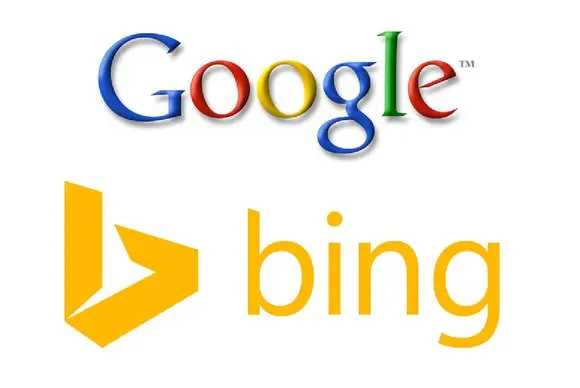
13-May-2023 , Updated on 5/14/2023 10:01:31 PM
Can Microsoft Bing compete with Google?
Google has long been the undisputed king of search engines. But Microsoft Bing has been making steady strides in the search engine market, with an increasing number of users turning to the platform as an alternative to Google. The question on many people's minds is: can Microsoft Bing compete with Google?
In this view, we'll explore the key differences between Bing and Google, and analyze whether Bing has what it takes to become a viable competitor in the search engine market.
Search Algorithm and Results
One of the most important factors that determines the success of a search engine is the quality of its search algorithm and the accuracy of its search results. Google's algorithm is widely regarded as one of the most advanced and sophisticated search algorithms in the world, incorporating hundreds of different factors to rank search results in order of relevance and usefulness.
Bing, on the other hand, uses a different algorithm that is less complex than Google's but still delivers relevant and useful search results. In fact, Bing often delivers more accurate results for certain types of queries, such as local search results or image searches.
User Interface and User Experience
Another key factor that influences the success of a search engine is the user interface and user experience. Google's search engine has a clean, minimalist design that is easy to navigate and use. Bing, on the other hand, has a more visually rich and complex design that some users find overwhelming.
However, Bing offers several features that are not available on Google, such as the ability to preview search results by hovering over them, and a more comprehensive image search experience. These features may make Bing more attractive to certain users, especially those who value visual content.
Market Share and User Base
One of the biggest challenges facing Bing in its competition with Google is the massive gap in market share. Google currently holds over 90% of the global search engine market, while Bing has less than 3%. This means that Google has a much larger user base and more data to analyze, which can be leveraged to improve its search algorithm and deliver more relevant search results.
However, Bing has been steadily growing its user base over the years, with some estimates putting its share of the US search engine market at around 20%. This indicates that there is room for growth for Bing, especially in specific niches or regions where it may have an advantage over Google.
Partnerships and Integration
Another key factor that can influence the success of a search engine is partnerships and integration with other products and services. Google has an extensive network of partnerships and integrations with other Google products, such as Google Maps, Google Drive, and Google Assistant. This integration creates a seamless experience for users and allows Google to collect more data on user behavior and preferences.
Bing also has partnerships and integrations with other Microsoft products, such as Microsoft Edge and Microsoft Office, as well as with social media platforms like Facebook and Twitter. These integrations can help Bing reach a broader user base and improve the user experience.
Advertising and Monetization
Finally, the success of a search engine also depends on its advertising and monetization strategies. Google has an extensive advertising network, which includes search ads, display ads, and video ads, and generates the vast majority of its revenue from advertising.
Bing also has an advertising network, but it generates a much smaller share of its revenue from advertising than Google. Instead, Bing relies on partnerships and integrations with other Microsoft products to generate revenue.
So, can Microsoft Bing compete with Google? While Bing faces several challenges, including Google's massive market share and extensive user base, it has several advantages that could help it carve out a niche in the search engine market. These include a unique search algorithm, visually rich search results, and partnerships and integrations with other Microsoft products.
Ultimately, the success of Bing will depend on its ability to continue improving its search algorithm and user experience, expanding its partnerships and integrations, and attracting new users to its platform.
In recent years, Microsoft has shown a commitment to improving Bing and competing with Google in the search engine market. In 2020, Microsoft announced several updates to Bing's search algorithm, including a new "Intelligent Answers" feature that provides more comprehensive and accurate answers to user queries.
Microsoft has also made significant investments in artificial intelligence and machine learning, which could help Bing deliver even more personalized and relevant search results in the future. Additionally, Microsoft's acquisition of LinkedIn in 2016 gives Bing access to valuable data and insights about professional users, which could help it better compete with Google in the business and career-related search queries.
While it is unlikely that Bing will ever overtake Google as the dominant search engine, it does have the potential to become a viable alternative for certain users and use cases. As Bing continues to improve its search algorithm, user experience, and partnerships and integrations, it will be interesting to see how it fares in the highly competitive search engine market.

SEO and Content Writer
I am Drishan vig. I used to write blogs, articles, and stories in a way that entices the audience. I assure you that consistency, style, and tone must be met while writing the content. Working with the clients like bfc, varthana, ITC hotels, indusind, mumpa, mollydolly etc. has made me realized that writing content is not enough but doing seo is the first thing for it.
Join Our Newsletter
Subscribe to our newsletter to receive emails about new views posts, releases and updates.
Copyright 2010 - 2026 MindStick Software Pvt. Ltd. All Rights Reserved Privacy Policy | Terms & Conditions | Cookie Policy